How to Handle Security Deposit Returns and Deductions Properly
Understanding Security Deposits: An Essential Overview
A security deposit is a sum of money collected by landlords at the start of a lease agreement. It serves as a financial safeguard for the landlord in case tenants damage the rental property, leave without paying rent, or violate terms of the lease. While security deposits are meant to protect landlords, they can be a source of confusion, disputes, and frustration for both parties when it comes to returns and deductions. Understanding the proper handling of security deposits can help avoid these issues and ensure a smooth process for everyone involved.
Legal Requirements for Security Deposit Returns
Each state or country has its own rules regarding security deposits, and it’s essential to understand these regulations to remain compliant. In the United States, for example, many states have specific laws outlining the maximum amount that can be charged for a security deposit, the timeline for returning it, and the conditions under which deductions can be made.
Timeframe for Returning Security Deposits
Most jurisdictions have strict timelines that landlords must follow for returning security deposits. Generally, landlords are required to return the deposit within a set number of days after the tenant moves out, typically between 14 and 30 days. Failure to meet this timeline could result in financial penalties, or tenants might be entitled to the full amount, regardless of damages or other issues.
Deductions and Itemized Statements
Landlords are legally required to provide an itemized statement of any deductions taken from the security deposit. This statement should clearly outline the specific reasons for each deduction, such as repairs for damages, unpaid rent, or cleaning costs. Without this detailed breakdown, tenants may have grounds for contesting the deductions.
Best Practices for Returning Security Deposits
Following best practices in handling security deposits not only helps landlords avoid disputes but also enhances their reputation with tenants. Below are some actionable tips for ensuring a smooth and legal security deposit return process.
1. Conduct a Thorough Move-In Inspection
A thorough move-in inspection should be conducted at the beginning of the lease. This allows both the landlord and the tenant to document the condition of the property before the tenant moves in. Take time to note the state of the walls, flooring, appliances, plumbing, and any other significant features of the property.
- Actionable Tip: Use a checklist to document the condition of each room, and take pictures to provide proof of the property’s state before the tenant moves in.
2. Hold a Detailed Move-Out Inspection
Upon a tenant’s departure, conducting a move-out inspection is critical to ensure that any damages or cleaning requirements are identified. Schedule this inspection shortly before or after the tenant vacates the property to ensure accuracy.
- Actionable Tip: Arrange for the tenant to be present during the move-out inspection so that they can see any damages and agree on the state of the property. This minimizes disputes later on.
3. Communicate with the Tenant
Clear communication throughout the process can prevent misunderstandings and disputes. Be transparent about how the security deposit will be handled, including timelines and possible deductions.
- Actionable Tip: Notify the tenant as soon as possible if any deductions are anticipated. If there are damages or cleaning issues, discuss them promptly and provide them with an opportunity to correct them before deductions are made.
Common Security Deposit Deductions
Security deposit deductions can arise from various situations. Landlords are typically entitled to deduct funds for the following reasons:
Property Damage
Property damage caused by the tenant is one of the most common reasons for security deposit deductions. This can include anything from broken appliances to damaged furniture, scratched floors, or stained carpets. However, deductions must reflect the actual cost of repairs or replacements.
- Example: If a tenant accidentally spills red wine on the carpet and it requires professional cleaning, the landlord may deduct the cost of cleaning or carpet replacement from the deposit.
Unpaid Rent or Utilities
Another common deduction is for unpaid rent or utilities. If a tenant fails to pay rent or leaves unpaid bills behind, the landlord can use the security deposit to cover the outstanding amounts.
- Example: If a tenant owes one month of rent at the time of moving out, the landlord is within their rights to deduct this amount from the security deposit.
Cleaning Costs
While normal wear and tear is expected, tenants are generally responsible for leaving the property in a clean condition. This includes cleaning carpets, washing windows, or tidying up any areas that have been heavily soiled. However, deductions for cleaning should only be made if the property requires more than basic cleaning.
- Example: If a tenant leaves behind excessive dirt, grease stains in the kitchen, or marks on the walls that go beyond normal wear and tear, the landlord can deduct the cost of cleaning from the security deposit.
Repairs for Unapproved Alterations
Tenants often make minor modifications to a rental property, such as painting walls, installing shelving, or making other improvements. If a tenant makes any alterations without the landlord’s approval, deductions can be made for the cost of restoring the property to its original condition.
- Example: If a tenant installs shelves that damage the wall and cannot be removed without causing damage, the landlord can deduct the cost of repairing the wall.
Legal Fees and Court Costs
If a tenant breaches the lease agreement and the landlord has to take legal action to recover unpaid rent or property damage, the landlord may deduct the legal fees and court costs from the deposit. This should only be done if explicitly stated in the lease agreement.
- Example: If a tenant refuses to pay rent for several months and the landlord must go to court to recover the money, the legal fees for the court case can be deducted from the security deposit.
Understanding Normal Wear and Tear
Normal wear and tear refers to the inevitable deterioration of the property that occurs with regular use. Landlords cannot charge tenants for wear and tear, as this is expected over time. Examples of normal wear and tear include:
- Faded paint
- Minor scuff marks on walls or floors
- Carpet wear from regular foot traffic
- Loose doorknobs or cabinet hinges
It is important for landlords to differentiate between actual damage caused by the tenant and normal wear and tear. Charging tenants for normal wear and tear is illegal in many jurisdictions and can result in disputes and potential legal consequences.
- Example: A carpet that has faded in color after several years of use is considered normal wear and tear, but a carpet with large stains or burns may be considered damage and subject to a deduction.
Tips for Avoiding Security Deposit Disputes
Security deposit disputes can be time-consuming and costly, but landlords can take several steps to minimize the risk of conflicts. By being proactive and following the tips below, landlords can increase the chances of a smooth process when returning security deposits.
1. Be Transparent with Tenants
From the beginning of the lease agreement, make sure tenants are clear on the security deposit policy, including the conditions under which deductions will be made. Clear communication can prevent disputes over expectations.
- Actionable Tip: Include detailed information about the security deposit return process in the lease agreement and provide a copy to the tenant for reference.
2. Document Everything
Documenting every aspect of the rental property, including the condition at move-in and move-out, helps prevent disputes over damages and cleaning. This documentation serves as proof in case of a dispute.
- Actionable Tip: Take comprehensive photos or videos of the property during the move-in and move-out inspections. These records can be invaluable if there is a disagreement over security deposit deductions.
3. Provide a Detailed, Itemized Statement
When returning a security deposit, always provide tenants with a detailed, itemized list of any deductions. This not only keeps the process transparent but also allows tenants to understand why their deposit was reduced.
- Actionable Tip: Use a standard form or template for itemizing deductions. This can make the process faster and more professional.
By following these best practices and legal requirements, landlords can handle security deposit returns and deductions with confidence, helping to maintain positive relationships with tenants while safeguarding their property.

Get a Free Rental Analysis
Want to know how much your home will rent for? We’ll send you a free rental report!
The Importance of Proper Documentation
Documentation is one of the most critical aspects of managing security deposits effectively. The more comprehensive your records are, the easier it is to justify any deductions and avoid disputes. Proper documentation protects both the landlord and the tenant and ensures that all legal requirements are met. Below, we’ll dive into why documentation matters and how to maintain it effectively.
Detailed Move-In and Move-Out Checklists
A well-documented move-in checklist is essential for establishing the property’s condition at the beginning of the lease. This checklist should be as thorough as possible, covering every room and important feature of the property. In addition to a physical checklist, photographs or videos of each area will serve as irrefutable evidence in the event of a dispute.
- Actionable Tip: Use digital tools or apps designed for property management to create and store checklists and photos. This helps with organization and makes it easier to access the information if needed.
At move-out, a similar checklist should be used. This move-out inspection will identify any discrepancies between the condition of the property at move-in and the condition upon departure. By comparing the two documents, it becomes easier to determine if deductions are necessary.
Photos and Videos
Photos and videos are powerful tools in preventing disputes. These records are particularly useful when dealing with damage or repairs, as they can clearly show the state of the property before and after the tenancy. The more detailed and clear your photos are, the better your defense will be if the tenant challenges any deductions.
- Actionable Tip: Take wide-angle photos to capture entire rooms and close-up images to show specific damage or wear. Ensure that each photo is time-stamped to establish when it was taken.
Written Communications
Communication with tenants should always be documented. Whether you’re discussing issues like potential deductions or clarifying timelines, keeping written records is crucial. Emails, text messages, or official letters can serve as proof in case a dispute arises.
- Actionable Tip: Send a confirmation email after each discussion with your tenants, summarizing what was agreed upon or discussed. This provides a paper trail that can help resolve any misunderstandings.
Understanding and Handling Disputes Over Security Deposits
Despite best efforts, security deposit disputes are a reality that landlords often have to navigate. Whether it’s a disagreement about deductions or a delay in returning the deposit, handling disputes correctly is critical for both legal compliance and tenant relations. Below are some steps to follow if a dispute arises.
Mediation and Negotiation
Before heading to court, landlords and tenants should consider mediation or negotiation. Many disputes can be resolved through simple conversations or third-party mediation services. Mediation involves a neutral third party helping both sides reach a fair agreement without the need for litigation.
- Actionable Tip: If a dispute arises, suggest mediation to the tenant as an alternative to taking legal action. This approach is often faster and less costly for both parties.
Be Open to Tenant Concerns
Listen to your tenant’s side of the story and review the situation from their perspective. Understanding the tenant’s point of view can help you identify any misunderstandings or errors on your part. It’s important to be reasonable and flexible while also protecting your interests.
- Actionable Tip: If a tenant disputes a particular deduction, ask them to provide evidence (such as photos or receipts) that contradicts your claim. This can help you avoid unnecessary arguments and come to a fair resolution.
Small Claims Court
If mediation or negotiation does not resolve the issue, the next step is to consider small claims court. Most security deposit disputes are handled in small claims court, where both parties present their case, and a judge makes a ruling. Small claims court is designed to be accessible without the need for a lawyer, though landlords should still ensure they have all necessary documentation and evidence to support their claims.
- Actionable Tip: If the dispute escalates to small claims court, prepare all your evidence, including checklists, photographs, and any communication between you and the tenant. This will improve your chances of success.
Tenant Rights and Legal Compliance
Landlords must ensure that their actions align with local and state laws. Failing to comply with these laws can not only result in penalties but also damage your reputation as a landlord. For example, some states require that landlords return security deposits even if there are damages, unless specific conditions are met.
- Actionable Tip: Familiarize yourself with your jurisdiction’s laws regarding security deposit deductions and returns. Consult a local attorney or property management expert to ensure you’re following all legal requirements.
Handling Late Security Deposit Returns
If you are unable to return the security deposit within the required timeframe, make sure to notify the tenant as soon as possible. Late returns without a valid reason can result in legal consequences. In some areas, tenants may be entitled to interest on their security deposit if it’s returned late, in addition to the deposit itself.
- Actionable Tip: If there is a delay in returning the security deposit, provide a written explanation to the tenant, outlining the reasons for the delay and an expected timeframe for when the deposit will be returned.
Best Practices for Avoiding Security Deposit Problems
While handling security deposits may seem complex, many issues can be avoided with a proactive and organized approach. Below are several best practices that landlords should follow to minimize the likelihood of disputes.
Set Clear Expectations in the Lease Agreement
A well-written lease agreement is the foundation for a smooth rental experience. The lease should clearly outline the security deposit amount, the conditions under which deductions may be made, and the timeline for returning the deposit.
- Actionable Tip: Include a clause in the lease agreement that specifies the process for security deposit returns, including the expected timeframe, allowable deductions, and procedures for dispute resolution. This sets clear expectations for both parties from the outset.
Conduct Routine Inspections
Routine inspections throughout the lease term help identify potential issues early, such as maintenance problems or tenant-caused damages. This allows tenants to address these concerns before they impact the security deposit.
- Actionable Tip: Schedule periodic inspections during the tenancy, and document the condition of the property. Provide tenants with ample notice before entering the property to maintain transparency.
Educate Tenants About Their Responsibilities
It’s essential to educate tenants about their responsibilities when it comes to maintaining the property. Tenants should understand that they are responsible for keeping the property clean and free from damage. However, they should also know what constitutes normal wear and tear.
- Actionable Tip: Provide tenants with a copy of the property’s maintenance guidelines and any specific expectations regarding upkeep. This ensures they are aware of their responsibilities and can avoid damaging the property in ways that would result in deposit deductions.
Offer Solutions for Damages
In cases where damage occurs, consider offering tenants the opportunity to repair the damage themselves to avoid a deduction. This can help maintain good relations with tenants and prevent them from feeling unfairly treated.
- Actionable Tip: If a tenant accidentally damages a wall or fixture, offer them the option to fix the issue themselves (if feasible) before making any deductions. This can save time and money while ensuring the tenant feels they are treated fairly.
Conclusion: Maintaining Fairness and Compliance in Security Deposit Management
Handling security deposit returns and deductions requires a balanced approach, one that prioritizes legal compliance, fairness, and clear communication. By documenting every step of the process, maintaining transparency with tenants, and adhering to local laws, landlords can avoid many common disputes and build trust with tenants.
Proactively addressing potential issues, maintaining thorough records, and staying informed about legal requirements will help ensure that security deposit returns and deductions are handled correctly, protecting both parties and ensuring a smooth rental experience.

Understanding Security Deposit Returns: Common Challenges and Best Practices
Common Challenges for Landlords in Handling Security Deposit Returns
Landlords face several challenges when it comes to managing security deposit returns, some of which can lead to disputes. Being aware of these common issues can help landlords avoid costly mistakes.
Disputes Over Deductions
One of the most frequent challenges is disagreements with tenants about the legitimacy of deductions. This can occur when tenants feel the deductions are excessive or unjustified. To prevent this, landlords should always document the condition of the property before and after the tenancy with photos or videos. Having a clear, written lease agreement specifying the conditions under which deductions may be made is also crucial.
Failure to Meet Legal Requirements
In many jurisdictions, landlords are legally required to return the security deposit within a specific period (typically 14-30 days) and provide an itemized list of any deductions. Failing to meet these requirements can result in penalties or even legal action. Landlords should be familiar with the specific laws in their area to ensure they comply.
Unclear Lease Agreements
A vague lease agreement can lead to confusion regarding the conditions of the security deposit, making it difficult to resolve disputes. It’s essential to include clear terms about what constitutes “damages” versus “normal wear and tear” and specify the time frame for returning the deposit.
Best Practices for Landlords to Prevent Security Deposit Issues
Implementing the following best practices can minimize issues with security deposits and improve landlord-tenant relations.
Conduct Thorough Move-In and Move-Out Inspections
Performing detailed move-in and move-out inspections is one of the most effective ways to avoid disputes. During the move-in inspection, document the condition of the property using a checklist and photographs. This documentation will serve as a valuable reference when evaluating the property at move-out. A clear, objective inspection record can prevent tenants from disputing deductions later.
Be Transparent and Communicate Openly
Clear communication is key to maintaining a positive relationship with tenants. Ensure that they understand the terms of the lease, including security deposit requirements. Before they move out, remind them of their responsibilities for returning the property in good condition. If deductions are necessary, provide a detailed breakdown and receipts to justify the charges.
Adhere to Legal Deadlines and Requirements
Make sure to return the security deposit within the timeframe mandated by law. If deductions are made, provide an itemized list along with any receipts for repairs. This transparency helps protect both parties and demonstrates that the landlord is acting in good faith.
Understanding Tenants’ Rights and Responsibilities
Tenants also have rights and responsibilities regarding the security deposit, and understanding these can help prevent confusion and disputes.
Tenant’s Responsibility to Return the Property in Good Condition
Tenants are expected to return the property in the same condition it was in when they moved in, excluding normal wear and tear. Tenants should clean the property thoroughly, fix any damages they are responsible for, and remove all personal belongings. By doing this, they help ensure they receive the full return of their security deposit.
Document the Condition of the Property at Move-In
Just as landlords should document the property’s condition, tenants should take photos or videos when they move in. This documentation can serve as evidence if disputes arise over damages at the end of the tenancy. It’s important for tenants to communicate any existing issues with the landlord at the start of the lease.
Know Your Rights When Disputing Deductions
Tenants have the right to dispute security deposit deductions if they believe the charges are unfair. If a landlord fails to return the deposit within the required timeframe or provides an insufficient itemized list of deductions, tenants can take legal action. Tenants should keep copies of all communications with the landlord and evidence to support their case.
How to Avoid Security Deposit Disputes: Tips for Both Parties
Disputes over security deposits are common, but they can often be avoided with the right approach from both landlords and tenants. The following tips can help both parties avoid conflicts and ensure a smoother security deposit process.
Establish Clear Lease Terms and Expectations
Both parties should have a clear understanding of the lease terms, including security deposit conditions. Landlords should outline specific expectations regarding property care, and tenants should ensure they understand their responsibilities. This can be done through a comprehensive lease agreement that covers issues such as the definition of damages, acceptable wear and tear, and the time frame for returning the deposit.
Maintain Open and Respectful Communication
Good communication is crucial in resolving potential issues early. Tenants should notify landlords about any issues they notice during the lease term, and landlords should keep tenants informed about their responsibilities regarding property care. If a dispute arises over the deposit, both parties should attempt to resolve the matter amicably before escalating to legal channels.
Provide Documentation and Evidence
Landlords and tenants should both keep thorough records. Landlords should document the property’s condition at move-in and move-out with photos, and tenants should do the same. In cases of deductions, landlords should provide itemized lists and receipts. This documentation can help clarify misunderstandings and serve as proof in case of legal action.
Legal Considerations and Consequences of Mishandling Security Deposits
Failure to handle security deposits correctly can have legal ramifications for landlords. Tenants also have legal protections in place that they can use to challenge unfair deductions or delays in returning the deposit.
Landlord’s Legal Responsibilities
Landlords must follow local and state laws regarding security deposit handling. This includes adhering to timelines for returning the deposit, providing an itemized list of deductions, and ensuring the deductions are reasonable. Failure to comply with these legal requirements could result in financial penalties, court action, or the requirement to return the full deposit, even if deductions were justified.
Tenant’s Legal Recourse
If tenants feel that their deposit was unfairly withheld or the deductions were unreasonable, they can take legal action. Tenants can file complaints with local consumer protection agencies or take the case to small claims court. It’s important for tenants to maintain clear records, including photos and written communications, to support their case.
Penalties for Non-Compliance
Landlords who fail to return security deposits on time or do not provide adequate documentation may be required to return the full deposit to the tenant, even if deductions were warranted. Additionally, they may face fines or legal costs if the matter goes to court.
Best Practices for Smooth Security Deposit Handling
Successfully managing security deposits requires clear communication, proper documentation, and adherence to legal requirements. By establishing clear expectations, maintaining detailed records, and following best practices, both landlords and tenants can ensure the process goes smoothly, minimizing the likelihood of disputes.
By addressing potential issues early and keeping an open line of communication, landlords can avoid costly mistakes, and tenants can ensure that their deposits are returned in full, provided they meet their responsibilities.
Suggested Relevant Links:
Comprehensive Guide to Investment Property Tax Deductions: Maximize Your Savings
Tax Deductions Every Palm Beach Gardens Landlord Should Know
Palm Beach Landlord Resources and Guides
The Comprehensive Guide to Legal Compliance in Palm Beach County Property Management
How to Ensure Legal Compliance in Property Management in Palm Beach County
FAQ: Handling Security Deposit Returns and Deductions Properly
1. What is a security deposit, and why is it important?
A security deposit is paid by the tenant to protect the landlord from damages or unpaid rent. It is refundable if the property is in good condition, minus any legitimate deductions for damages.
2. What deductions can be made from a security deposit?
Deductions can be made for damages beyond normal wear and tear, unpaid rent, or cleaning costs. Examples include broken appliances or excessive dirt. Normal wear and tear, like faded paint, can’t be deducted.
3. How long do landlords have to return the security deposit?
Landlords usually have 14-30 days to return the deposit, depending on local laws, and must provide an itemized list of deductions.
4. Can a landlord keep the entire security deposit for minor issues?
No, deductions must be reasonable and for actual damage or unpaid rent, not minor issues or normal wear and tear.
5. How can a tenant dispute security deposit deductions?
Tenants can resolve the issue with the landlord, request an itemized list of deductions, or take the case to small claims court with supporting evidence.
6. What are normal wear and tear vs. damage?
Normal wear and tear includes minor scuff marks or carpet fading. Damage refers to destruction caused by tenant misuse or neglect, like broken windows.
7. What if the security deposit isn’t returned on time?
If the deposit isn’t returned within the legal timeframe, tenants can contact the landlord, file a complaint with housing authorities, or go to small claims court.
8. Can tenants request an inspection before moving out?
Yes, tenants can request a move-out inspection to address any issues and avoid deductions.
9. What should a landlord do if a tenant leaves without paying rent or causing damage?
Landlords can deduct unpaid rent or repair costs from the deposit, but must provide documentation for deductions.
10. Can landlords charge for regular maintenance from the deposit?
No, regular maintenance is the landlord’s responsibility and cannot be deducted from the security deposit.
11. Can tenants get the deposit back if they’ve caused damage but repaired it?
Yes, if repairs are done satisfactorily, the tenant may receive the full deposit back, but should provide proof of repairs.
12. What should a landlord include in an itemized deduction list?
The list should outline each deduction, including a description of the damage, the repair cost, and receipts if applicable.
13. How can landlords avoid security deposit disputes?
Landlords should have clear lease agreements, document inspections, maintain transparency, and return deposits promptly with detailed explanations for deductions.
14. Can landlords deduct for cleaning the property?
Landlords can deduct cleaning costs if the property is excessively dirty but cannot charge for basic cleaning.
15. What happens if a landlord refuses to return the security deposit without a valid reason?
Tenants can take legal action, including filing a complaint or going to small claims court with proper documentation.



